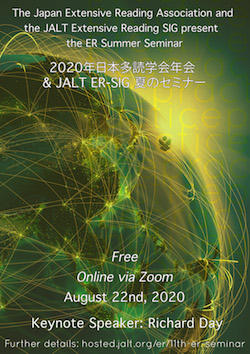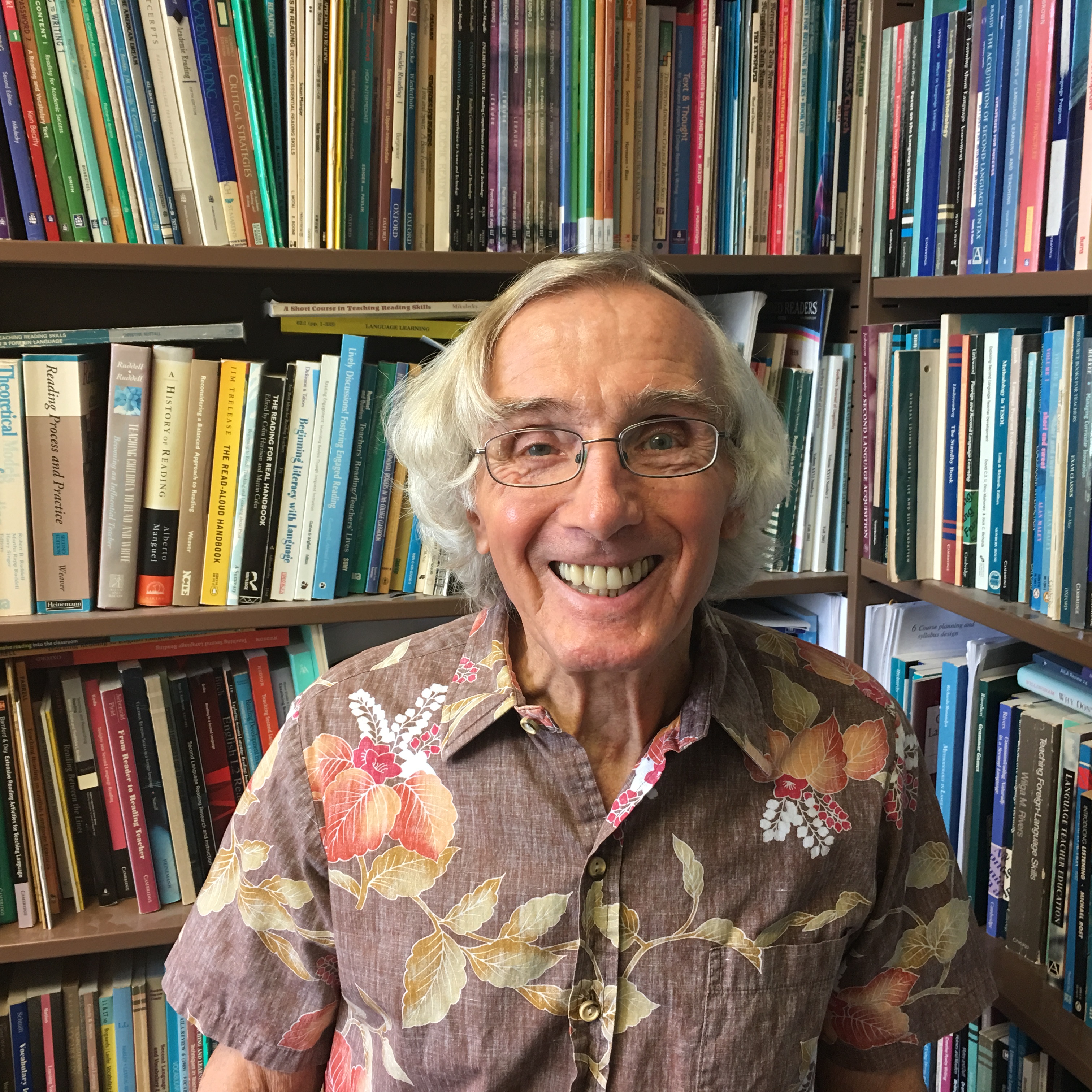The 11th Annual Extensive Reading Seminar
The 11th ER Seminar
-
In association with the Japan Extensive Reading Association (JERA)
The JALT ER SIG 11th Annual Seminar has concluded successfully. Thank you to our speakers and presenters, all the hardworking officers and others who made it a success - not least the participants!
This is the call for the JALT ER SIG 11th Annual Seminar to be held online (via Zoom) in conjunction with the Japanese Extensive Reading Association (JERA) on August 22nd, 2020. Richard Day will be the plenary. If you wish to present at the Seminar through the ER SIG, please submit your presentation abstract and details here. The deadline for submissions is July 19th. We expect to announce the results in early August. You can submit (and present) in Japanese if you wish. More details will be furnished later.
Rob Waring, 11th Annual ER Seminar Program Chair
-
Date: Saturday 22nd August, 2020
-
Time:
-
Place: Online via Zoom
-
Co-Chairs: Kazushi Henmi (JERA) and Mark Brierley (JALT ER SIG)
-
Theme: Extensive Reading in Practice
-
Speakers: Plenary Speaker Richard Day:
-
Dr. Richard R. Day is a professor in the Department of Second Language Studies, University of Hawai’i. His primary research and instructional interests are second language pedagogy and teacher education. Dr. Day’s most recent book is Teaching Reading (2nd edition). He is the co-editor of the online scholarly journal, Reading in a Foreign Language. He has been a visiting professor at Ashiya University.
Plenary Title and Abstract: Extensive Reading in Practice
Richard R. Day
The focus of my presentation is on how extensive reading is actually used in second and foreign language (L2) contexts and its impact. I begin with a brief overview of extensive reading in which I discuss the history and nature of extensive reading. Next, I go over the ten principles that my colleague, Julian Bamford, and I formulated from our analysis of successful extensive reading programs. This is followed by a discussion of the findings of a study on the practice of extensive reading and the extent to which the 10 principles were reported to have been used. I then go over the effects of extensive reading on L2 learning. My presentation concludes with some speculation on the practice of extensive reading in the near future.


